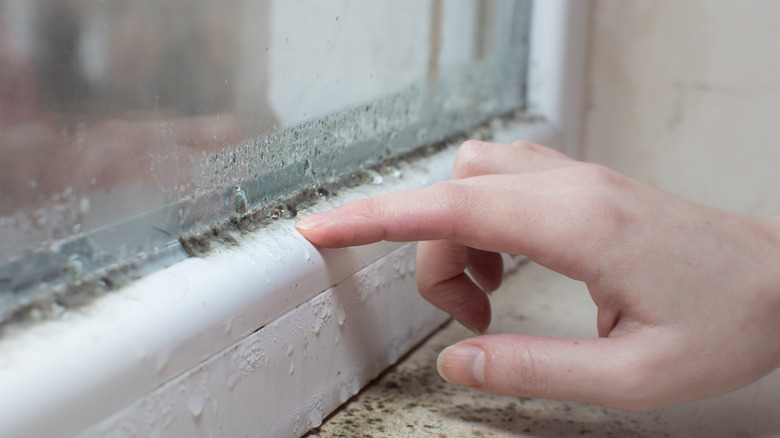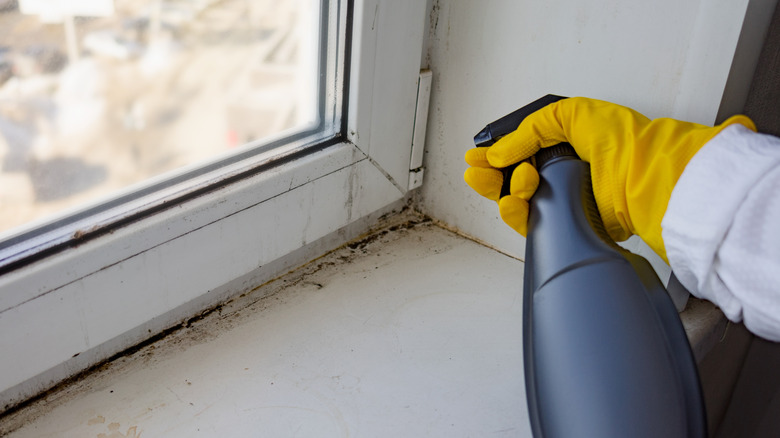Banish Condensation And Mold From Windowsills With Ingredients You Already Own
We may receive a commission on purchases made from links.
Mold, the most dreaded houseguest–aside from the insect population showing up with baggage–finds your condensation-rich windowsill particularly hospitable. The concern about mold is that breathing in spores can cause health problems ranging from allergic reactions to mycotoxins in susceptible people. Diligence in drying up condensation accumulations within 48 hours to prevent the spore-wielding fungus from taking a foothold in your space is key to prevention. What if you could remove windowsill mold and prevent it from coming back with two ingredients you likely already have on hand? Great news, you can! All you need is vinegar and dish soap.
The recipe is simple: first, add equal parts water and white vinegar. About 2 cups of each funneled into a spray bottle should do the trick, then add a few drops of your favorite dish soap. We recommend you choose one with a known history of breaking up grease and grime, such as Dawn Platinum or the slightly more affordable Palmolive Ultra Strength. Spray the afflicted area, let it sit for about an hour, then use a soft-bristled toothbrush to scrub it away. Small spaces such as windowsills can usually be taken care of on your own, but protect yourself with proper PPE such as gloves, goggles, and an N-95 respirator. Infestations that you don't feel comfortable handling or that are larger than 10 square feet should be professionally treated. So, how does this dynamic duo of white vinegar and dish soap work to keep condensation and mold at bay in the small space of your window?
Why vinegar and dish soap works
It is no surprise that vinegar plays a role in condensation control and cleaning up mold, as there are so many ways to use vinegar to keep your house clean. This particular team of vinegar and dish soap works well together because both ingredients operate in tandem to cut through grimy buildups. The acidic nature of vinegar kills mold and makes it think twice about coming back. Additionally, vinegar can kill off certain bacteria and viruses. Vinegar concoctions that include dish soap offer a mild desiccant effect, which can pull in and dry out the air around the glass. This is a temporary fix, but it can reduce those pesky condensation droplets in the short term. Notably, this DIY treatment can be repeated as often as necessary.
Dish soap is right up there with our pal vinegar on the versatility checklist of unexpected things you can clean with around your home. One reason it is great for cleaning outside the kitchen lines is that it provides surfactants to the mix. Surfactants reduce surface tension. This is what cuts through tough grease and whatnot in the kitchen. With mold, it is not enough to simply kill it. For people with specific allergies or elevated sensitivity levels, it is imperative to completely rid the environment of mold and take steps to prevent it from returning. Those surfactants from the dish soap help ensure that said removal is complete.

